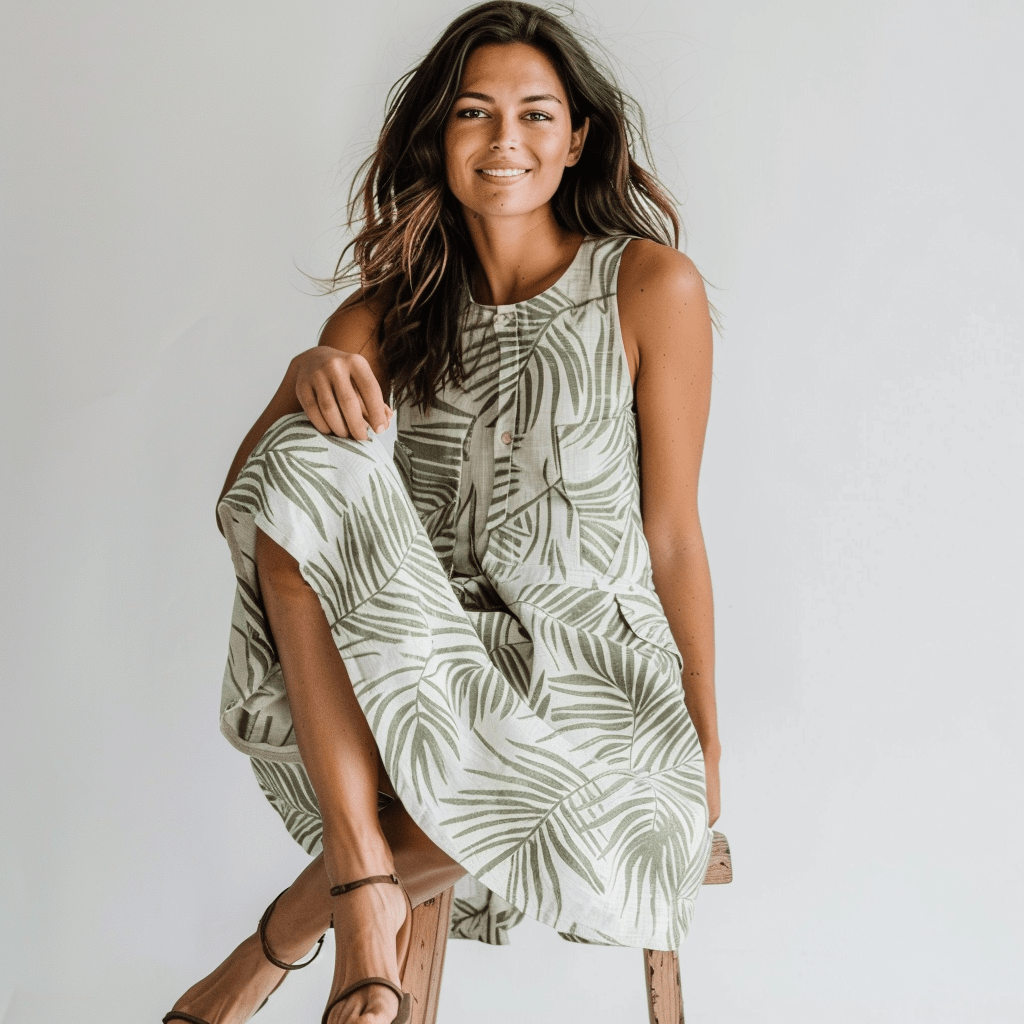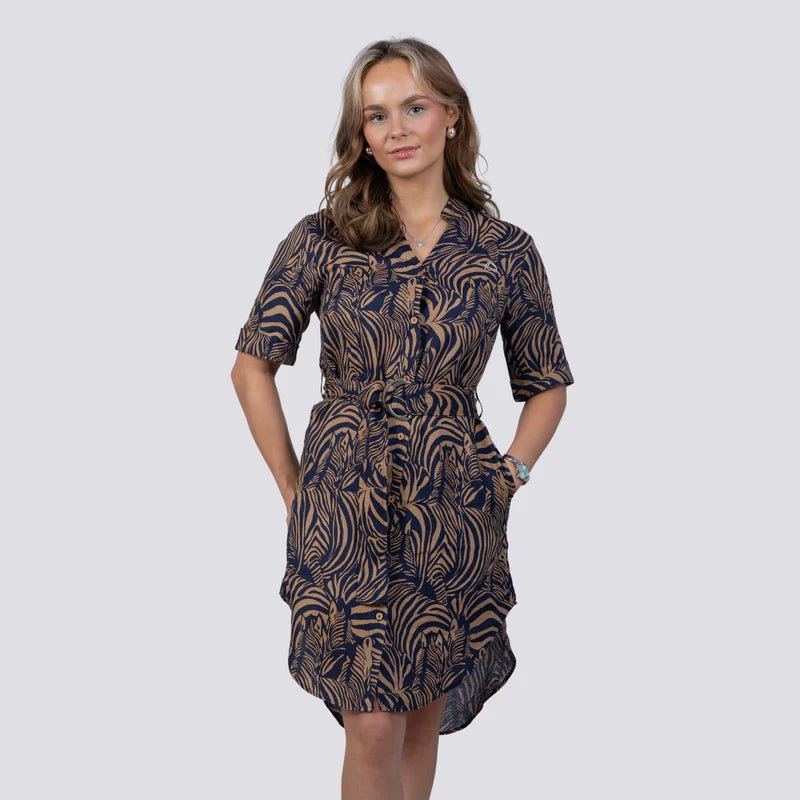
Women Redefining Clothing Style and Ethics in the UK
Introduction
Fashion has always been a dynamic industry, continuously evolving and shaping society's standards and perceptions. In the UK, women have been at the forefront of this transformation, redefining sustainable clothing style and infusing ethical considerations into the fashion landscape. Here we delves into how women in the UK are reshaping the fashion industry, focusing on style innovation and ethical practices.
The Evolution of Women's Fashion in the UK
Historical Perspective
The journey of women's fashion in the UK is rich with historical milestones. From the opulent gowns of the Victorian era to the flapper dresses of the Roaring Twenties, each period has left an indelible mark on fashion. The post-World War II era saw a shift towards more practical and affordable clothing, reflecting the changing roles of women in society. The 1960s brought about a revolution with mini-skirts and bold prints, symbolizing freedom and rebellion.

Modern Day Fashion Trends
In contemporary times, British women's fashion is a blend of classic elegance and modern innovation. High street brands like Marks & Spencer, Topshop, and ASOS offer a diverse range of styles that cater to different tastes and age groups. The influence of British designers such as Vivienne Westwood, Stella McCartney, and Alexander McQueen continues to be significant, pushing the boundaries of creativity and sophistication.
Women Leading Ethical Fashion
The Rise of Conscious Consumerism
One of the most significant shifts in recent years has been the rise of conscious consumerism. Women in the UK are increasingly aware of the environmental and social impacts of their fashion choices. This awareness has led to a growing demand for sustainable and ethically produced clothing. The trend is not just about buying less but buying better, focusing on quality over quantity.
Ethical Brands and Initiatives
Several ethical brands have emerged in response to this demand. Brands like Karee leading the way by offering stylish yet sustainable options. These brands prioritize fair trade practices, use organic materials, and ensure that their workers are paid fairly and work in safe conditions.
The Role of Influencers and Social Media
Social media has played a crucial role in promoting ethical fashion. Influencers like Venetia La Manna, Megan Ellaby, and Emma Slade Edmondson use their platforms to advocate for sustainable clothing fashion choices and educate their followers on the importance of ethical consumption. Through Instagram posts, YouTube videos, and blogs, these influencers are making ethical fashion more accessible and appealing to a broader audience.
Redefining Clothing Style: A Fusion of Tradition and Modernity
Embracing Diversity and Inclusion
The modern fashion landscape in the UK is increasingly inclusive, celebrating diversity in all its forms. Women are redefining style by embracing their cultural heritage and personal identities. This shift is evident in the popularity of clothing that reflects a fusion of traditional and contemporary designs. For instance, Afro-British designers are incorporating African prints and patterns into modern silhouettes, creating unique and vibrant collections.
Tailoring and Customization
Customization has become a significant trend, allowing women to express their individuality through their clothing. Tailoring services are more accessible than ever, with many brands offering bespoke options. This trend not only ensures a perfect fit but also reduces waste by promoting a more intentional approach to fashion consumption.
The Revival of Vintage and Second-Hand Fashion
Vintage and second-hand fashion have seen a resurgence in popularity. Women are turning to thrift stores, online vintage shops, and clothing swaps to find unique pieces that add character to their wardrobes. This trend aligns with the ethos of sustainability, promoting the reuse and recycling of clothing.
The Impact of Technology on Fashion
Digital Fashion Shows and Virtual Try-Ons
The COVID-19 pandemic accelerated the integration of technology in the fashion industry. Digital fashion shows have become a norm, allowing designers to showcase their collections to a global audience. Virtual try-ons, enabled by augmented reality (AR), have made shopping more convenient and interactive. Women can now see how clothes will look on them without stepping into a store.
The Rise of Fashion Tech Startups
Fashion tech startups are revolutionizing the industry by developing innovative solutions to reduce waste and enhance sustainability. Companies like Depop and Vinted offer platforms for buying and selling second-hand clothing, while others like Rent the Runway provide rental services for high-end fashion. These startups cater to the growing demand for ethical and sustainable fashion options.

Challenges and Future Directions
Overcoming Fast Fashion
Despite the positive strides, the fast fashion industry remains a significant challenge. Fast fashion brands produce cheap, trendy clothing at the expense of environmental and social ethics. Women in the UK are increasingly aware of these issues, but there is still a long way to go in shifting consumer behavior towards more sustainable practices.
Education and Advocacy
Education and advocacy are crucial in driving this shift. Initiatives like Fashion Revolution, which promotes transparency and accountability in the fashion industry, are vital. Women are using their voices to demand better practices from brands and to educate others about the importance of ethical fashion.
The Role of Policy and Regulation
Policy and regulation also play a critical role in shaping the future of ethical fashion. Government policies that support sustainable practices, such as incentives for eco-friendly businesses and stricter regulations on waste management, are essential. Women-led organizations and advocacy groups are actively working towards influencing policy changes that will support a more sustainable and ethical fashion industry.
Conclusion
Women clothing style and ethics, leading a transformative movement towards a more sustainable and inclusive fashion industry. Through conscious consumerism, the embrace of diversity, and the integration of technology, they are setting new standards for what fashion can and should be. As these trends continue to evolve, the future of fashion in the UK looks promising, driven by a commitment to ethics and a celebration of individuality.









Leave a comment
This site is protected by hCaptcha and the hCaptcha Privacy Policy and Terms of Service apply.